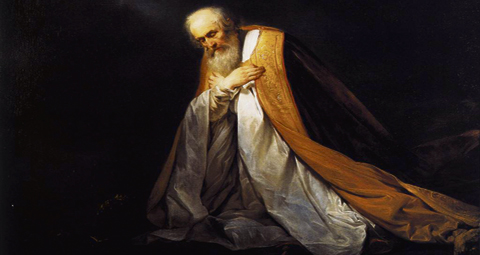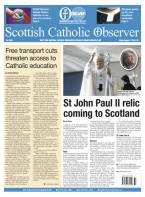March 30 | ![]() 0 COMMENTS
0 COMMENTS ![]() print
print

Forming a mutually loving relationship involving ‘holy fear’
— RONALD ROLHESIER
Not all fear is created equal, at least not religiously. There is a fear that is healthy and good, a sign of maturity and love. There is also a fear that is bad, that blocks maturity and love. But this needs explanation.
There is a lot of misunderstanding about fear inside of religious circles, especially around the Scriptural passage that says that the fear of God is the beginning of wisdom. Too often texts like these, as well as religion in general, have been used to instil an unhealthy fear inside of people in the name of God. We need to live in ‘holy fear,’ but holy fear is a very particular kind of fear that should not be confused with fear as we normally understand it.
What is ‘holy fear?’ What kind of fear is healthy? What kind of fear triggers wisdom?
Holy fear is love’s fear, namely, the kind of fear that is inspired by love. It is a fear based upon reverence and respect for a person or a thing we love. When we genuinely
love another person we will live inside of a healthy anxiety, a worry that our actions should never grossly disappoint, disrespect, or violate the other person. We live in holy fear when we are anxious not to betray a trust or disrespect someone. But this is very different from being afraid of somebody or being afraid of being punished.
Bad power and bad authority intimidate and make others afraid of them. God is never that kind of power or authority. God entered our world as a helpless infant and God’s power still takes that same modality. Babies do not intimidate, even as they inspire holy fear. We watch our words and our actions around babies not because they threaten us, but rather because their very helplessness and innocence inspire an anxiety in us that makes us want to be at our best around them.
The Gospels are meant to inspire that kind of fear. God is Love, a benevolent power, a gracious authority, not someone to be feared. Indeed God is the last person we need to fear. Jesus came to rid us of fear. Virtually every theophany in scripture—an instance where God appears—begins with the words: “Do not be afraid!” What frightens us does not come from God.
In the Jewish scriptures, the Christian Old Testament, King David is revealed as the person who best grasped this. Among all the figures in the Old Testament, including Moses and the great prophets, David is depicted as the figure that best exemplified what it means to walk on this earth in the image and likeness of God, even though at a point he grossly abuses that trust. Despite his great sin, it is to David, not to Moses or the prophets, to whom Jesus attributes His lineage. David is the Christ-figure in the Old Testament. He walked in holy fear of God, and never in an unhealthy fear.
To cite just one salient example: The Book of Kings recounts an incident where David is, one day, returning from battle with his soldiers. His troops are hungry. The only available food is the bread in the temple. David asks for that and is told that it is only to be consumed by the priests in sacred ritual. He answers the priest to this effect: “I am the King, placed here by God to act responsibly in his name. We don’t ordinarily ask for the temple bread, but this is an exception, a matter of urgency, the soldiers need food, and God would want us to responsibly do this.” And so he took the temple bread and gave it to his soldiers.
In the Gospels, Jesus praises this action by David and asks us to imitate it, telling us that we are not made for the Sabbath, but that the Sabbath is made for us. David understood what is meant by that. He had discerned that God is not so much a law to be obeyed as a gracious presence under which we are asked to creatively live. He feared God, but as one fears someone in love, with a ‘holy fear,’ not a blind, legalistic one.
A young mother once shared this story with me: her six year-old had just started school. She had taught him to kneel by his bed each night before going to sleep and recite a number of night prayers. One night, shortly after starting school, he hopped into bed without first kneeling in prayer. Surprised by this, she challenged him with the words: “Don’t you pray anymore?” His reply: “No, I don’t. My teacher at school told us that we are not supposed to pray. She said that we are supposed to talk to God … and tonight I am tired and have nothing to say!”
Like King David, he too had discerned what it really means to be God’s child and how God is not so much a law to be obeyed as a gracious presence who desires a mutually loving relationship, one of holy fear.











